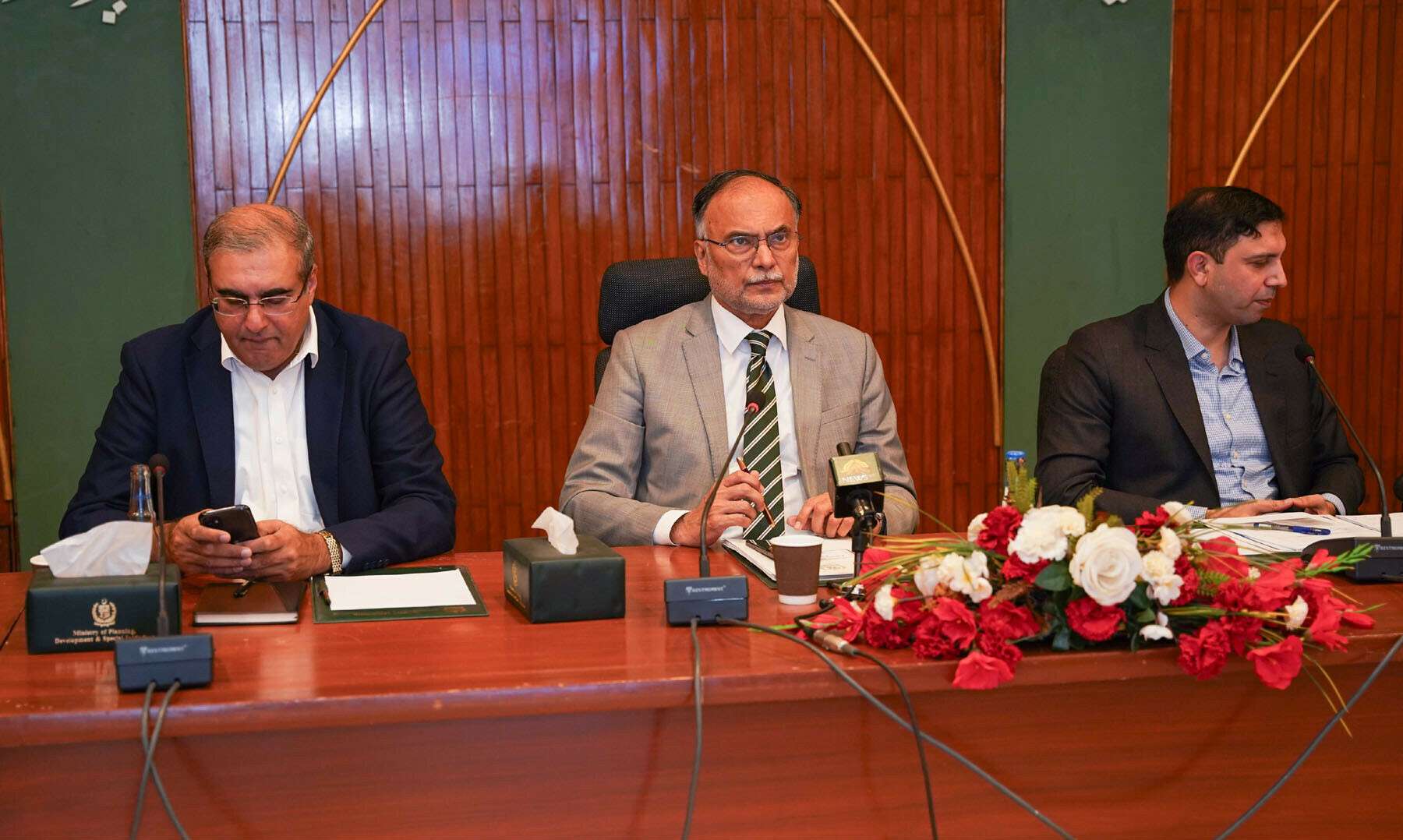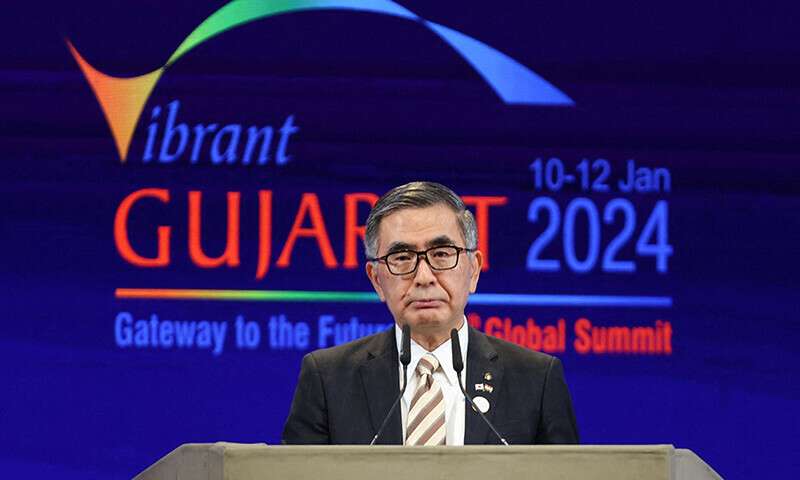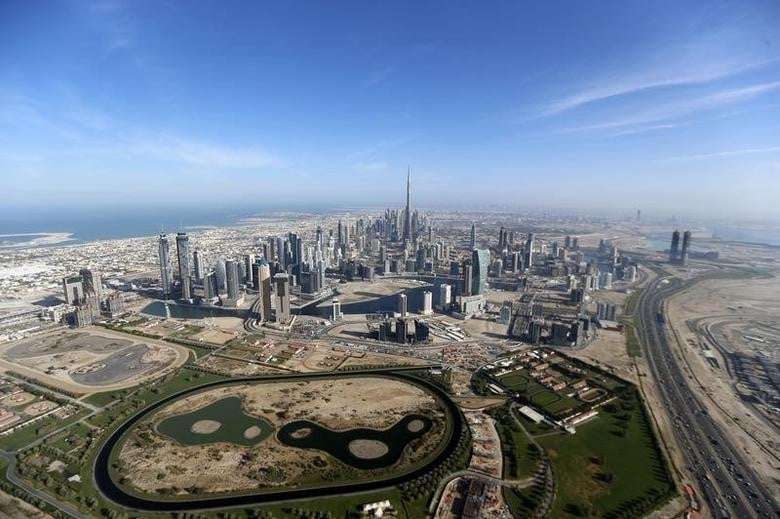Introduction
In a significant development aimed at addressing the critical congestion issues plaguing Pakistan’s major port city, the federal government has approved plans to provide dedicated road and rail access to Karachi Port. This decision is part of broader infrastructure initiatives designed to alleviate the severe congestion hampering international trade and bolster the country’s economic growth. The approval came following an inter-ministerial meeting, chaired by Ahsan Iqbal, the Federal Minister for Planning, Development, and Special Initiatives. The meeting included representatives from several ministries, including maritime affairs, communications, railways, aviation, commerce, and planning.
In this article, we explore the context and details of this important decision, the steps involved in its execution, and the expected outcomes for Pakistan’s trade and economic development.
The Urgency of Addressing Karachi Port Congestion
Karachi Port plays a vital role in Pakistan’s international trade, handling the majority of the country’s container traffic. However, the port has long struggled with significant congestion, both on its roads and railway access points. This congestion not only hampers the efficiency of trade operations but also contributes to environmental challenges, exacerbating the already high traffic issues in Karachi, one of the most populous cities in the world.
The congestion issues at Karachi Port primarily stem from the heavy reliance on road transport for cargo movement, with rail access remaining largely underutilized. The existing infrastructure, particularly the roads leading to the port, is insufficient to handle the growing volume of trade, leading to frequent bottlenecks. This scenario has prompted the government to take immediate action to ensure smoother trade flows and reduce the burden on the city’s already overwhelmed road network.
Key Issues Contributing to Port Congestion
1. Underutilization of Rail Infrastructure
One of the primary concerns highlighted during the meeting was the underuse of rail access to Karachi Port. Rail transport has the potential to significantly alleviate the load on road networks, reducing congestion and environmental impact. However, Pakistan’s rail facilities have been underdeveloped for many years, resulting in their limited capacity to handle cargo efficiently.
2. Congested Roads Due to Truck Curfews
Karachi faces a daily truck curfew, which restricts the movement of goods carriers between 6 am and 11 pm. This has further exacerbated the congestion around the port. These restrictions have led to slow cargo movement, creating delays and inefficiencies in handling containers and shipments.
3. Limited Capacity of Port Facilities
Karachi Port, along with Port Qasim, faces significant limitations in terms of its infrastructure’s capacity. While Port Qasim benefits from relatively better road connectivity, its proximity to Karachi Port means it may also face congestion in the future, particularly if rail access isn’t improved by 2030.
4. Environmental Impact of Road Transport
The heavy reliance on road transport for goods movement has had adverse environmental effects. With the increasing number of trucks on the roads, pollution levels have risen, contributing to the city’s air quality deterioration. This problem calls for a sustainable solution that encourages the use of rail transport, which is more eco-friendly than road freight.
Government’s Response to the Port Congestion Crisis
In response to these mounting challenges, the federal government has taken decisive steps to enhance the port’s efficiency and reduce congestion. During the inter-ministerial meeting, the Planning Commission presented a detailed report outlining the short- and long-term solutions required to address these issues.
Short-Term Solutions
The immediate measures proposed include the implementation of 24/7 operations at Karachi Port. This will ensure that the port can operate continuously, maximizing its capacity and reducing the waiting time for trucks and cargo. Additionally, freight truck movements will be regulated through pre-arranged schedules, allowing for smoother traffic flow and reducing congestion.
Long-Term Solutions
To address the issue of road congestion, the government has prioritized the development of an elevated expressway. This project will be crucial in easing the traffic flow around the port, providing dedicated lanes for trucks, and ensuring that goods can be transported more efficiently to and from the port.
Simultaneously, investments in rail infrastructure will be made to improve upcountry freight transport. Rail transport is a more cost-effective and environmentally friendly option, and enhancing its capacity will help reduce reliance on road transport, thus alleviating congestion. The development of both road and rail infrastructure will complement each other, ensuring a holistic and sustainable solution to the challenges at Karachi Port.
The Role of the New Committee
In light of the urgent need for solutions, the Prime Minister has established a new committee tasked with reviewing the port-related challenges and presenting a comprehensive, consensus-based solution within two weeks. This committee, which includes representatives from the Planning Ministry, Port Qasim Authority, Maritime Affairs Ministry, National Highway Authority (NHA), and the Railways Ministry, will assess the proposals and collaborate on the most feasible and effective way forward.
The involvement of multiple stakeholders will ensure that all aspects of the project are addressed, from technical infrastructure to regulatory frameworks, creating a unified approach to tackling the congestion crisis.
Expected Impact of the Dedicated Access Projects
The dedicated road and rail access to Karachi Port will have several positive outcomes for Pakistan’s economy:
1. Boost to Trade and Economic Growth
By improving port efficiency, Pakistan will be able to handle higher volumes of trade. This will have a direct impact on the country’s GDP and foster economic growth. Increased trade will also improve Pakistan’s global competitiveness and strengthen its position as a regional trading hub.
2. Job Creation
The new infrastructure projects will create jobs, both directly in construction and indirectly in the sectors supporting the logistics and transportation industries. This will provide a significant boost to the local economy, particularly in Karachi.
3. Environmental Benefits
The shift from road to rail transport will help reduce the environmental impact of the port’s operations. Rail is a more sustainable mode of transport, reducing carbon emissions and alleviating the congestion-related pollution in Karachi.
4. Improved Connectivity
Enhanced connectivity will make Karachi Port more accessible to other parts of Pakistan and improve its linkages with international trade routes. This will be particularly beneficial for inland transportation, reducing delays and costs associated with freight movement.
5. Long-Term Infrastructure Growth
The infrastructure improvements will not only solve immediate congestion problems but also provide the foundation for long-term growth in port facilities and transportation networks, positioning Pakistan for sustained trade and economic success.
Conclusion
The federal government’s approval of dedicated road and rail access to Karachi Port is a significant step forward in addressing the port congestion crisis that has been hindering Pakistan’s economic growth for years. With both short- and long-term measures in place, this initiative promises to enhance trade efficiency, improve environmental sustainability, and create new economic opportunities for Pakistan.
As the new committee works on finding a comprehensive solution, the government remains committed to strengthening port operations, ensuring that Karachi Port becomes a more efficient gateway for international trade.
FAQs
1. What is the purpose of the dedicated road and rail access to Karachi Port?
The purpose is to alleviate congestion, improve the efficiency of trade, and provide sustainable solutions for Pakistan’s growing international trade demands.
2. What short-term measures will be implemented to reduce congestion?
Short-term measures include 24/7 operations at Karachi Port and the scheduling of freight truck movements to reduce traffic congestion.
3. What long-term solutions are being considered for Karachi Port congestion?
The development of an elevated expressway and improvements to rail infrastructure are key long-term solutions to address port congestion.
4. How will the new infrastructure benefit Pakistan’s economy?
The new infrastructure will boost trade efficiency, reduce transportation costs, create jobs, and enhance Pakistan’s global competitiveness.
5. Who is overseeing the resolution of Karachi Port’s congestion issues?
A new committee comprising representatives from several key ministries and authorities has been tasked with addressing the congestion issues at Karachi Port.
MUST READ:


